This is an in-depth and astute analysis by James Carroll of the New Yorker. I am with James Carroll here although I do begin with God comfortably, and not my ability to think which follows. I am very thankful for Pope Francis’ moral leadership at such a dark time in human history. The only thing I would add to it is that given his challenging clarity on priority on the poor, shelter for immigrants and refugees, a humble priesthood, the sacred nature of all of creation including mother earth, and the stance of not judging the GLBT community, there are only two lacks. First, not to judge is not the same as challenging church doctrine on the GLBT community where “disordered” is still taught and believed. And, while Pope Francis praises the abilities of women, if women cannot be ordained to meet the call of God to priestly vocation, and the needs of a failing church still losing people by the droves,and to reach out to the poor and outcast it is the Church and the people that continue to suffer. For the life of the Church and the life of the world,I hope that he will add real moral clarity on women to his impressive guidance,including accepting women’s ordination.
Rev Dr. Judith Lee, RCWP-USA-East-
Pastor, Good Shepherd Inclusive Catholic Community Fort Myers
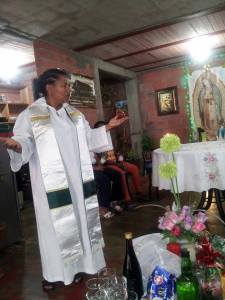



SEPTEMBER 16, 2015
What to Make of Pope Francis Now?
BY JAMES CARROLL
Under Francis, the Catholic Church continues its slow march toward modernity.
As Pope Francis heads to Cuba and the United States this month, with an itinerary that includes visits to the Castros, the U.S. Congress, the White House, the United Nations General Assembly, and a major Catholic convocation in Philadelphia, the measure of his accomplishments and further promise remains confused. Is he a radical or merely a liberal? Does he seek to revise Church dogma—to bring it in line with some ethical ideal—or to formulate a pastoral response that is rooted in reality, and that leaves the institution unchanged? Among Roman Catholics, conservatives emphasize that, for all the hoopla about gays, divorce, women, and dogs going to heaven, he is not changing Church doctrine. Liberals, on the other hand, recognize in him a longed-for reformer of Vatican corruptions and cruelties. In the secular world, where his reach is astonishing, he is celebrated as a prophet of compassion and economic justice, even as his stern pronouncements on climate change, global capitalism, the plight of migrants, and a host of other issues are dismissed as lacking “practical strategies for a fallen world,” as David Brooks put it in the Times.
The prevailing commentary so emphasizes the once-unimagined uniqueness of Francis that the larger and longer context of his arrival goes unrecognized: the real meaning of this surprising Pope is being missed. Rather than seeing him as a cult-worthy personality who represents something wholly new in Catholicism, it is better to understand Francis, even in his stylistic deviations, as the culmination of a slow, if jerky, recovery on the part of the Church from its self-defeating rejection of modernity.
That process began centuries ago. Galileo Galilei may seem like the ghost of another era, but by Catholicism’s slow-ticking clock he was alive practically yesterday. When Rome’s inquisitors condemned the seventeenth-century astronomer to house arrest, declaring him a heretic for his support of heliocentrism, the Church imprisoned itself in the preference of abstract ideology over testable experience—of what could be read in Scripture over what could be glimpsed through a telescope. In effect, Galileo had said that if hard data contradicted doctrine, then doctrine must be reinterpreted. By the twentieth century, the Church’s rejection of modernism—not only scientific thinking but also democratic liberalism, pluralism, and individual rights—had become so rigid that it was bound to crack, and crack it did.
With the Second Vatican Council, which lasted from 1962 to 1965, the Church began the process of leaving behind the most egregious of its dogmatisms—like the notion that there was no salvation outside Catholicism. Inevitably, there was pushback, embodied most notably in the Vatican’s condemnation of birth control, in 1968; in the words of one dissenting cardinal, this was “another Galileo affair.” But the Catholic reconciliation of oppositions between reason and faith, between change and tradition, between freedom of conscience and magisterial imperative, moved inexorably forward, driven mainly by the common sense and moral independence of the Catholic people. They found ways of affirming the faith—loyally attending Mass, for instance—even as Church authority was hollowed out and the clerical culture disgraced itself.
Ultimately, the new thinking had an effect even on conservative figures in the hierarchy, including Popes John Paul II and Benedict XVI. The former apologized (more than three hundred and fifty years after the fact) for the denunciation of Galileo, and he was a champion of the Jewish people, advancing reforms that, implicitly, at least, involved the most radical transformation of theology in Christian history. The latter, although he railed against “the dictatorship of relativism”—the abandonment of absolute standards of thought and conduct—actually relativized the absolute claims of the papacy by resigning his office, conduct that itself upended how the Vatican is perceived. Francis’s two reactionary predecessors, in other words, prepared his way. True, the power of his presence in the Church and the world is a function of his magnetic temperament, his wily use of the levers of governance, and his uncanny sense of word and gesture. But that Francis is one of a kind achieves its potency only when joined to his being part of a larger historical current.
To those, both inside and outside the Church, who want less talk of ultimate justice and more talk of immediate policy—less mercy, more moralism—the Pope gave his answer early on. “The structural and organizational reforms are secondary,” he told an interviewer in 2013. “The first reform must be the attitude.” Pay attention to what’s really going on with people; begin there and change will follow. The recent breathtaking papal call to the Catholic parishes, monasteries, and convents of Europe to warmly receive migrant families—a practical strategy if ever there was one—did not come out of thin air. It was anticipated by the reform of attitude that Francis began, two years ago, with his prophetic journey to Lampedusa, the Mediterranean island on which many thousands of refugees have been landing. (One can’t help but ask what would have happened, in 1943, if Pope Pius XII had similarly instructed every Catholic parish in Europe to take in a Jewish family.) And as Francis demonstrated earlier this month in his surprisingly compassionate statement about abortion—an acknowledgment of “the agonizing and painful” decisions involved in a woman’s choice—his starting point is affirmation, not condemnation. A large-hearted feel for moral complexity trumps the narrow-minded moral rigidity that has mostly been the mark of Church responses. This shift in attitude is more than the mark of a nice man, and it has been a long time coming.
If Francis is not expressly overturning Church doctrines or the structures of the world economy, he is certainly overturning how Catholics think of doctrine and how savage global inequality must be regarded—the reform of attitude in religion and politics both. But attitude is defined, above all, by vantage point. “You have to start from the ground up,” Francis said in the same 2013 interview. This amounts to a watchword for a Pope who looks at power from below, and it explains his unrelenting emphasis on the poor. Doctrine and policy—the indissolubility of marriage, say, or cap-and-trade approaches to pollution control—must be evaluated, first, by their impact on the vast population of men, women, and children who have been tossed onto the garbage heap of history. What are the abstractions of religion and politics actually doing to people?
Starting from the ground up implies a clear preference for experience over dogma. Whether consciously or not, Francis upholds the revolutionary principle that has gripped the Western mind since the Enlightenment—that the human project begins not in divine dictate (“In the beginning, God…”) but in self-awareness (“I think, therefore I am”). Ethical insight opens onto theological insight, not the other way around. The perception, for example, of the goodness of a person who happens to be gay suggests that the creator of that good person does not condemn him. Therefore, so famously: Who am I to judge?
Galileo was right, but his insight extends well beyond the solar system. Hard data—migrants washing up on the shores of an amoral capitalism, the planet laid waste, wives trapped by the rules that tie them to abusive husbands, the evident connection between gender equality and justice for all—requires the reinterpretation of traditional beliefs, religious and secular both. In the various spheres within which Francis operates, experience over ideology means, yes, doctrinal change, economic reform, political transformation. Whether or not such change, reform, and transformation actually follow from the Pope’s advocacy, and whether or not he himself would specifically affirm them, he is pointing to a hopeful future. Practical strategies for a fallen world begin with moral clarity. In offering it, Pope Francis is helping his Church come of age at last.










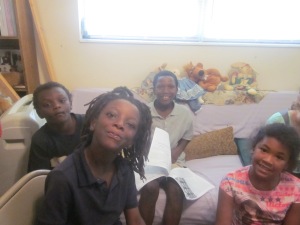
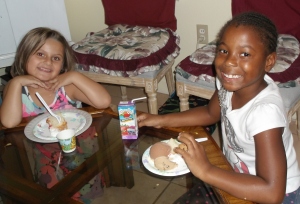



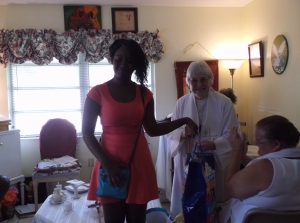









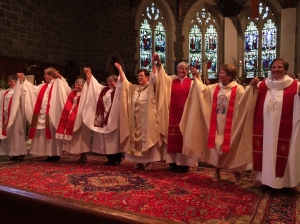
































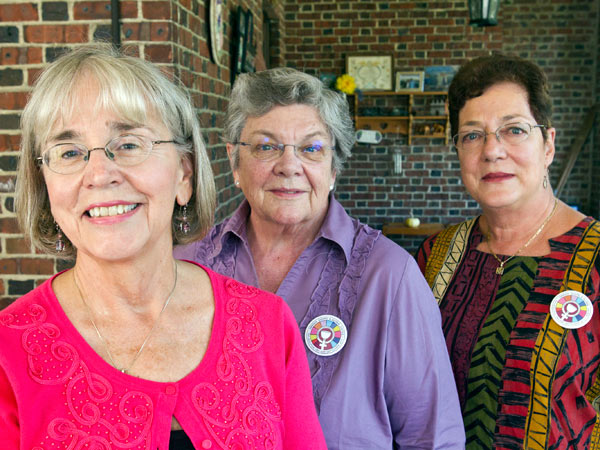
















Recent Comments